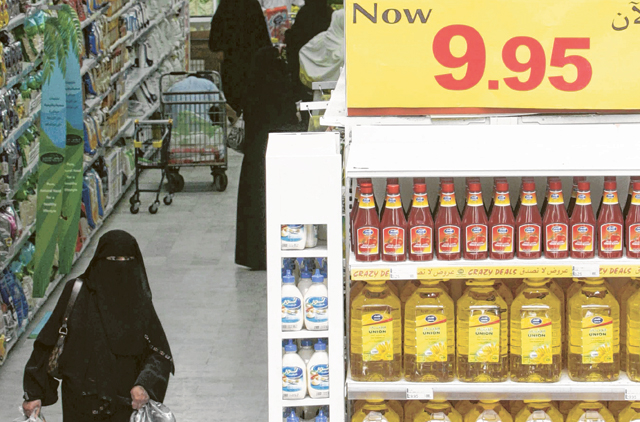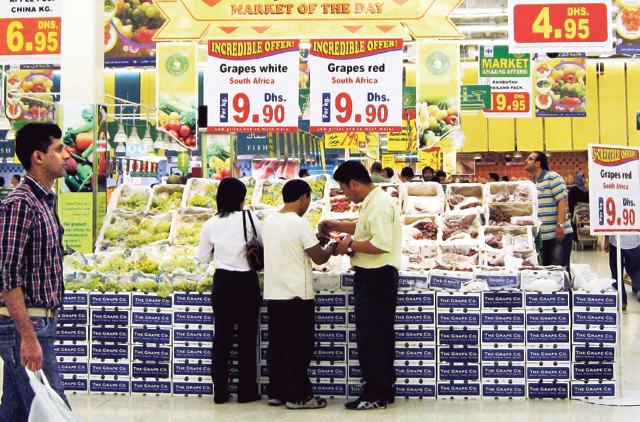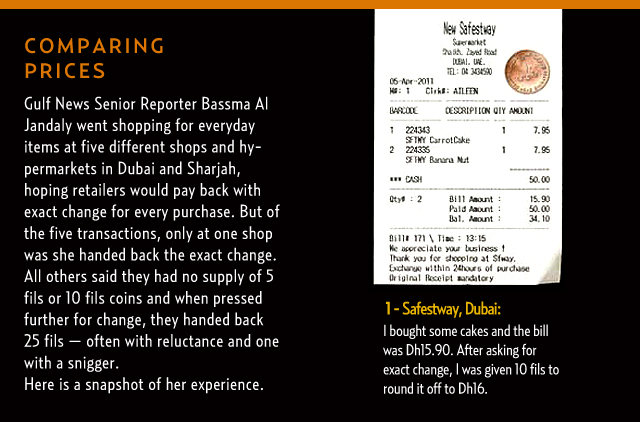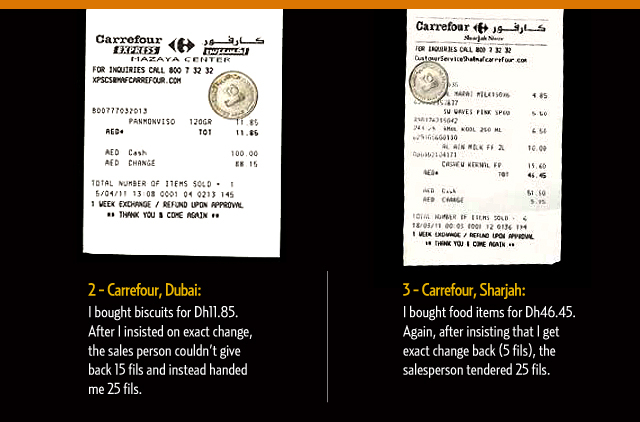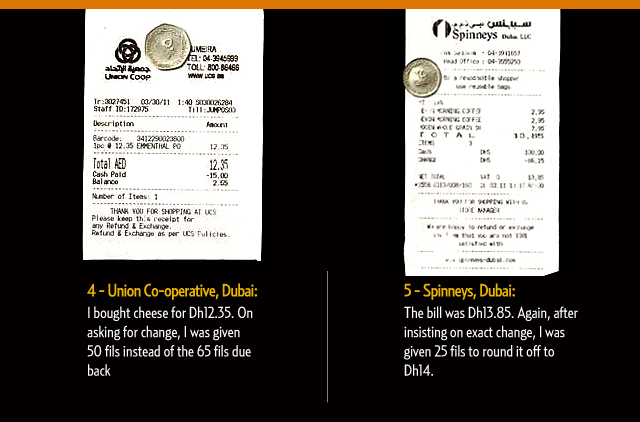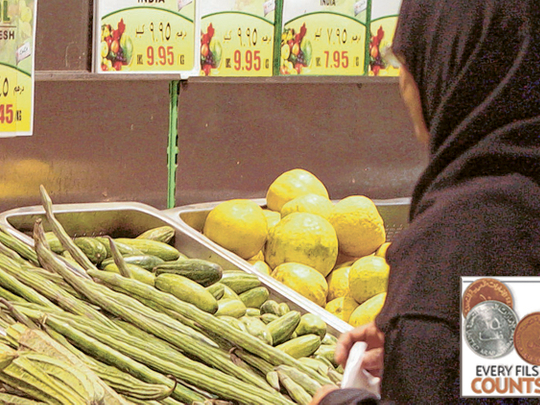
Dubai: A bottle of milk for Dh4.85, cashewnuts for Dh19.60 and carrot cake for Dh7.95. These were some of the everyday items I shopped for last week, at various supermarkets and hypermarkets in Dubai and Sharjah.
When my turn came for billing, I politely asked for the exact change back at each of them.
At the first hypermarket, where my bill came to Dh11.85, I tendered a Dh100 note but the cashier said the bill was being rounded off to Dh12. When I demanded that she also account for the 15 fils, she handed me back 25 fils and a rather disdainful look.
Read more:
- UAE Central Bank continues to mint all six denominations: official
- Expert's view: Pricing strategy is all in the numbers
- Editorial: Consumers in UAE must ask for exact change
At a chic fashion store in one of Dubai’s leading malls, the two female cashiers at the till burst out laughing when I tepidly asked for my 15 fils back.
At another supermarket – where I bought the cake – my bill was Dh15.90, and when I paid Dh16, something stunning happened: I was handed back the exact change of 10 fils.
It’s one of the rarest moments for consumers across the UAE when they see the shining face of a 5 fils or a 10 fils coin.
Most supermarkets, pharmacies, gas stations and other retailers often don’t bother to tender them to customers even if change is due, and many don’t even keep them as they find the small-sized coins too cumbersome to handle. But this widespread malpractice is leaving residents shortchanged by a massive margin.
Video: Where's my change?
An approximation based on reader feedback puts the average money lost in transactions due to shortage of 1, 5 and 10 fils at Dh10 per month per household.
With an estimated total of between 500,000 to 800,000 households in the UAE, the gross money lost by customers in the process is between Dh5 and 8 million, which works out between Dh50-Dh100 million per year.
Residents say that since almost every business in the country charges customers to the actual fils despite the fact 5 fils and 10 fils are not in wide circulation, it amounts to hidden money shoppers are forced to pay.
Feyaza Khan from Radio 2 went in search of those elusive coins and got more than she asked for...
Most hypermarkets, supermarkets, shops and other outlets said the standard practice is to round off to the last 25 fils or the next 25 fils of the bill amount.
For example, if a customer runs up a bill of Dh175.85 or Dh175.90 at a retail outlet, his total chargeable bill amount would be either Dh175.75 or rounded off to Dh176, varying from one shop to another.
Retailers say the rounding off practice is a good one for accounting purposes and they are certainly not profiteering from this because if the customer’s total bill amount were say, Dh176.15 or Dh176.10, they will be asked to pay only Dh176. However, consumers strongly disagree.
Ali Khan from Pakistan said he bought items worth Dh25.15 and the cashier charged him 10 fils extra. “I said to her where is my 10 fils? She said 10 fils are not available,” Khan said.
“The supervisor at the hypermarket came to solve the problem and offered me 25 fils instead,” he said. Ali Khan said he took the 25 fils and left. “I know they are making a lot of money out of the extra fils they take from customers,” he said.
Another customer at a hypermarket chain in Dubai said he bought one item for Dh12.35. “I gave the cashier Dh15, and the balance due was Dh2.65. I received back Dh2.50 instead,” he said. “We are forced to pay extra money. I have no clue what they do with this money,” he said.
“I think there should be clear cut policy regarding small change, the shopper should not be denied his/her rightful money. I wonder how much these supermarkets make from not giving back the change,” said Mohammad Ashraf, a shopper at a leading supermarket in Abu Dhabi.
Most supermarkets, hypermarkets and major retail outlets interviewed by Gulf News admitted the price of many items end in the odd fils. A sales superviser at Carrefour said 10 and 5 fils were not available and “most customers usually ask us why we charge them extra fils”.
A woman cashier at a Union Cooperative in Dubai said: “Customers ask us why we add 20, 40, 95, 80 and other fils… I have no clue why it is like that.”
Amal, an Emirati government employee, said when she goes for shopping she only uses her debit card. “I use only my debit card because in this way I do not pay such extra money,” he said. “For debit/credit cards they deduct the specific amount we purchase, no less no more,” she said.
V. Nandakumar, manager of corporate communications at EMKE Group, which runs the Lulu chain of hypermarkets in the UAE, said they round off the bills to the nearest amount of the bill value.
“This works both ways and the law of averages makes sure that nobody loses or gains from this. We can’t streamline the pricing to avoid the small change, mainly because of the fresh and perishable commodities, as these are priced as per the weight and are not pre-packed with fixed prices.”
Not every retailer or supermarket, however, follows the practice of not accepting or returning 5 fils and 10 fils: there are exceptions too.
Kamal Vachani, Group Director at Al Maya, which operates 30 supermarkets in the UAE, said their customers are billed the exact purchase amount.
“We give the change back to the customers. There is no difficulty in sourcing 5 fils or 10 fils coins, they are not in short-supply,” he added. The Abu Dhabi Cooperative also said they accept and return 5 fils and 10 fils coins to customers.
However, as matters stand, because of the dearth of awareness and small change as well retailers not tendering exact change, most shoppers in the UAE are still more likely to say at cash counters - “keep the change”, rather than making every fils count.
So the next time you are out shopping, don’t leave without your 10 fils.
With inputs from Himendra Mohan Kumar/Staff Reporter


